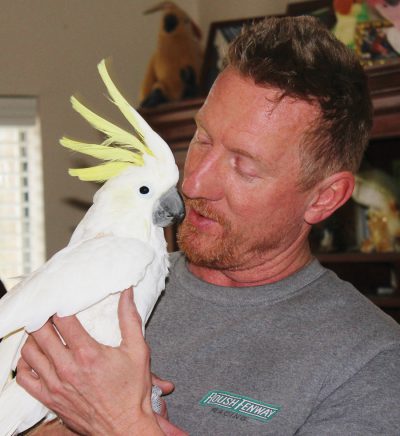Exotic Avian Sanctuary of Tennessee is registered as a 501(c)3 non-profit organization.
Contributions are tax-deductible to the extent permitted by law. ©2025 All rights reserved.
Planned Giving
Wills | Trusts | Financial Account Beneficiary
If you have a favorite cause that is important to you, you can leave a positive legacy and make a real difference to that cause by Planned Giving. You may leave funding for a non-profit that is meaningful to you through your Will, a Trust, or through various Financial Accounts, such as life insurance or an IRA account. If you wish, you may also specify a specific area to which your gift would apply. Your legacy is making an investment in our success!
What is Planned Giving?
- Gifts in a will, trust or beneficiary of a financial account
- Gifts of assets
- Often occur at someone’s death
- Giving is “planned” because it takes some thinking and sometimes the help of an attorney, CPA or financial advisor
 What triggers planning?
What triggers planning?
- Marriage/Divorce
- Health Issues
- Death of a family member
- Birth or adoption of children or grandchildren
- Retirement
- Sale of business
- Significant appreciation of assets
- Inheritance
- Move to another state
- Change of a guardian, executor, or trustee is desired
- A big trip
And/Or - Significant tax law changes since the last review
Types of Gifts in a Will
- Specific or Percentage Bequest
- Residual Bequest
- Contingent Bequest
Specific or Percentage Bequest
EAST can be named as the direct beneficiary of a stated amount of money, a particular piece of property, or a stated percentage of one’s estate.
Residuary Bequest
EAST can be designated to receive all or a portion of the remainder of one’s estate once all specific bequests to family and friends have been satisfied.
Contingent Bequest
Often, individuals provide that assets should go to family members or friends. However, it is important to provide for a contingent beneficiary to receive assets in case one’s named individual beneficiaries do not survive you. There is no limit on the amount one can leave to EAST or to other charitable organizations through one’s will.
Use Of Gifts
Leaving your gift unrestricted allows EAST to allocate funds where they are most needed. However, if you wish to direct your bequest towards the conservation efforts for a particular parrot species or to a specific project please add the following phrase to the wording recommended above: “To be used to further the purposes of EAST in the conservation efforts for:_________”.
Because of the complexity of estate planning, it is important that one’s attorney or notary structures one’s estate and writes one’s will to best carry out one’s wishes. EAST cannot act as executor of a donor’s estate. Some people may name EAST in their wills and never let us acknowledge their invaluable support. If one completes one’s will and includes EAST, please share this with us. It will aid us in our planning efforts and ensure your funds are utilized to their best intent. We also feel strongly about expressing our gratitude to those supporters who have remembered EAST in such a generous way. As applicable laws will vary by region, EAST further recommends seeking appropriate legal council regarding any changes or alterations of one’s will.
As part of an estate plan, many people set aside part of their estate for the care of their animals either in a Will, a Trust or a separate Pet Trust. Your attorney will teach you about the law in your particular state but you should teach them about you, your family and your goals and wishes. Your Will or Trust should specifically state who will receive your companion animal(s) and should include or incorporate your “plan.” Do you want to leave a fixed sum, a percentage of your estate, and should they be paid in a lump sum or periodically, or have your successor trustee or executor pay for actual expenses? Do you want to have someone mke periodic inspections of your animal companion(s) to ensure they are being well care for, and if not, what happens? Where do you want your animals to live?
Types of Financial Account Beneficiary
- IRA: If you are over 70, you can turn part of your life savings into a lifesaving gift for our parrots. You may make a gift to EAST directly from your IRA for up to $100,000 per year, and it will be tax-free. It is a good idea to notify EAST of your gift so it can be matched to you when it arrives. Many financial institutions do not include the name of the donor on the check.
- Life Insurance Policy: You may choose to make EAST your life insurance beneficiary in honor of your companion bird. This is a good option for bird owners whose bird(s) will need a forever home someday, but who might not have assets upon their death to pay for it’s long-term care.
Bequest Language (the legal information you will need to furnish your attorney or financial institution)
I give to Exotic Avian Sanctuary of Tennessee, a Tennessee corporation with its principal offices at 981 Old Lebanon Dirt Road, Hermitage, TN, 37076-4210, (the sum of ____________) (all or ________ percent of my residual estate) to be used for its general purposes. Tax ID#: 1406940160.
For more information on how to include EAST in your will, please reach out to us at info@tnavianrescue.org

